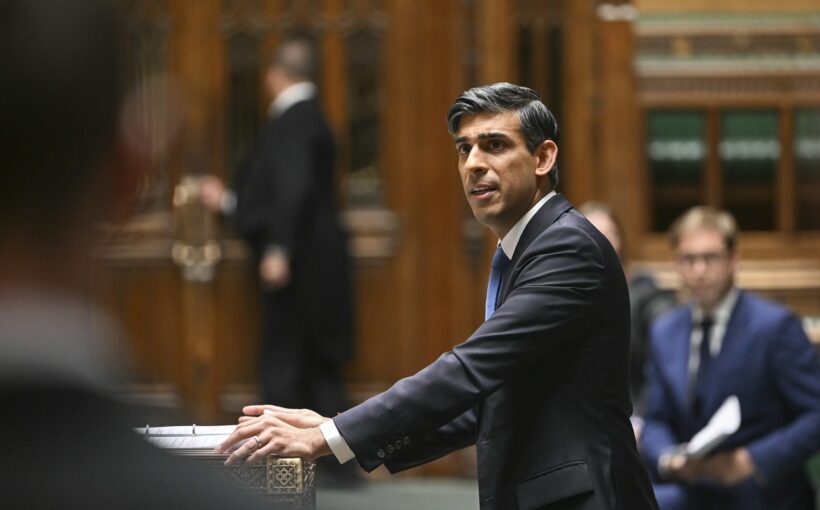 The 4 remaining Conservative Leadership contenders, (L- R) Robert Jenrick, James Cleverly, Kemi Badenoch, Tom Tugendhat.
The 4 remaining Conservative Leadership contenders, (L- R) Robert Jenrick, James Cleverly, Kemi Badenoch, Tom Tugendhat.Maybe the Conservatives don’t really need a new leader, after all.
Remarkably, the party has actually gained seven local council seats in the past five weeks after suffering a landslide general election defeat less than three months ago.
That is despite the fact that, for all intents and purposes, the Tories are effectively leaderless at the moment.
Rishi Sunak is still nominally in charge. But even those close to him concede that he mentally checked out of the job on the morning of July 5.
Indeed, the former PM will hardly be seen at the Conservatives’ annual conference in Birmingham, which kicks off on Sunday. He will address a members-only reception that evening, and is expected to play no further part in the proceedings.
Instead, the conference will be a political beauty contest, as James Cleverly, Tom Tugendhat, Kemi Badenoch and Robert Jenrick fight for the right to succeed Sunak as Tory boss.
The Conservatives’ poll ratings have recently ticked up slightly, although this has more to do with the Labour government’s ongoing woes than a sudden wave of affection for the Tories.
Polling by Savanta, seen by HuffPost UK, confirms that the general public have stopped paying attention to the party.
Given a choice of who would make the best opposition leader, Sunak, Nigel Farage or Ed Davey, the most popular answer was “don’t know”.
Emma Levin, associate director at Savanta, said: “There is clearly a big gap in British politics for an opposition politician to properly take Keir Starmer to task. But that hasn’t happened yet.”
One former Tory cabinet member, who is yet to decide who to back in the leadership race, told HuffPost UK that the conference is an opportunity to show the public that the party still exists.
“Labour being so shit has just overwhelmed everything,” he said. “I’m genuinely surprised that they’re making a lot of very basic mistakes.
“People have forgotten all about Rishi Sunak. It has all been about Labour and how bad they’ve been.”
The MP said he hoped that one of the four remaining candidates may emulate David Cameron, who used the party conference in 2005 to destroy his more-favoured rival, David Davis.
“This year’s conference is about bringing the leadership contest back to centre stage, and highlighting what the differences are between the contenders.
“We’ll be looking to see how they perform, whether they commit any gaffes and whether any of them can do a Cameron-esque performance that blows everyone else away.”
Under the rules of the contest, the remaining four will be whittled down to three and then two by a couple of ballots of Tory MPs when Westminster returns the week after next. It will then be up to the party’s members to decide the winner, who will be announced on November 2.
 The contenders: clockwise from top left, Kemi Badenoch, Robert Jenrick, Tom Tugendhat and James Cleverly
The contenders: clockwise from top left, Kemi Badenoch, Robert Jenrick, Tom Tugendhat and James CleverlyFormer immigration minister Jenrick is now the bookies’ favourite, overtaking the previous frontrunner Badenoch.
One of his supporters said: “There is a lot of momentum behind Robert’s campaign, but he’s not taking anything for granted, he’s going to keep working hard to persuade MPs to support his positive case for change.
“He’s the only candidate who can win back voters on the left and right with his focus on the big issues and his serious, credible answers on the key challenges of the day, such as immigration, NHS reform and growing our economy.”
But a Badenoch campaign source insisted she was very much still in the race.
He said: “Kemi has been touring the country solidly for the past few months, going from Conservative association to Conservative association and getting an amazing reception from the members.
“All the independent polling puts her way out ahead with our membership. This conference is a chance to show MPs she is the members’ choice – the one with the star quality to cut through as a leader of the opposition and take the fight to Labour.”
Cleverly, a former party chairman, foreign secretary and home secretary, is seen by many as the dark horse of the contest, with even a senior figure in a rival campaign admitting he is “under-priced” by the bookies.
A source on his campaign described the conference as “a home fixture”, given his popularity with the party’s rank-and-file.
“He is a party man who loves campaigning and engaging with the activists and members – and he gets a consistently good reception from them wherever he goes, mainly because he knows half of them,” the source said.
“His approach is to engage as much as possible with the members, to set out his pitch as the unity candidate and the most experienced candidate who is ready to hit the ground running from day one as leader.”
It is barely 12 weeks since the Tories were reduced to just 121 MPs in the House of Commons, a statistical irrelevance when compared to Labour’s 411 and fewer than 50 seats ahead of the Lib Dems.
Whoever wins the leadership race faces a monumental task in trying to return the party to power at the next election.
Nevertheless, there remains a flicker of optimism among the party that the new Labour government’s struggles are not just a blip, but a sign that their seemingly-impregnable Commons majority could be wiped out at the first attempt.
They believe there is some light at the end of a very long tunnel. Whether it turns out to be an oncoming train remains to be seen.



